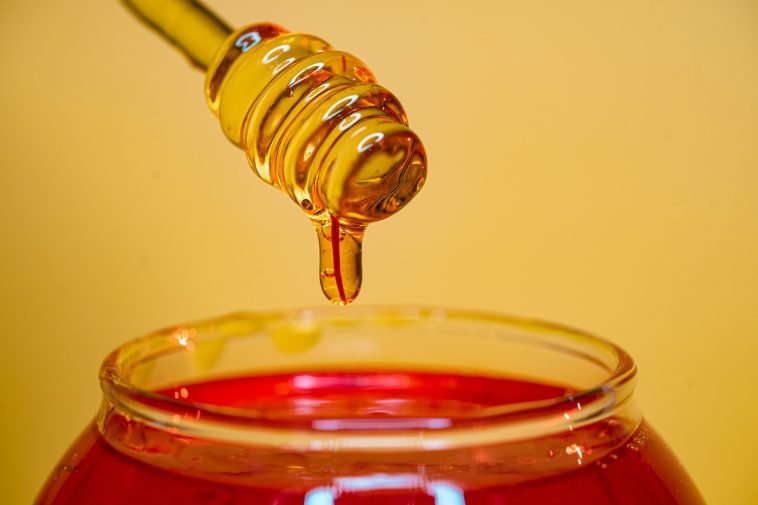Introduction.
Nigeria’s honey business is buzzing with potential, and starting your venture could be a sweet opportunity—literally.
With increasing awareness about the health benefits of honey and its growing demand in both local and international markets, stepping into this industry can be rewarding.
But how do you start? Let me walk you through the key steps and what you need to know.
Why Honey?
Honey isn’t just a natural sweetener; it’s a health powerhouse. Many Nigerians are now choosing honey over processed sugar, thanks to its antibacterial, antioxidant, and immune-boosting properties.
Plus, honey has diverse uses in skincare, medicine, and even traditional remedies. This growing preference has led to a steady rise in demand. Nigeria’s local honey market alone is worth millions of naira annually, and there’s also export potential.
If you’re interested in a business that aligns with the global shift toward healthier living, honey production is a great choice.
How Do I Start a Honey Business in Nigeria?
1. Learn the Basics of Beekeeping
Before jumping in, take some time to understand how honey is made and harvested. Beekeeping involves managing bee colonies to ensure they’re healthy and productive.
You don’t need a degree, but attending workshops or training programs on beekeeping is a good idea. Organizations like the Nigerian Beekeepers Association or agricultural extension offices can help.
2. Get the Right Equipment
You’ll need specific tools for beekeeping, such as:
- Beehives: These house the bees. You can choose from traditional hives (made of wood or clay) or modern ones like the Langstroth hive.
- Bee Suits and Gloves: Safety gear is essential when handling bees.
- Honey Extractor: Used to remove honey from the combs.
- Smoker: This calms the bees, making it easier to work with them.
For a small-scale operation, starting with 10–20 hives is manageable. As your business grows, you can expand your setup.
3. Pick the Perfect Location
Bees thrive in quiet areas with plenty of flowering plants, water, and minimal human disturbance. Rural areas or farmlands are often ideal for setting up hives. However, make sure the location is accessible for you to check on the hives and harvest honey.
4. Get Bees
Beekeeping starts with acquiring bees. Local markets or beekeeping associations often sell bee colonies. You can also trap wild bees using bait hives, though this requires patience and skill.
5. Master Hive Management
Your hives need regular attention. Check for:
- Bee health: Watch out for pests or diseases that could harm your colony.
- Honey production: Ensure your bees are producing and storing honey properly.
- Hive cleanliness: Keep hives clean to maintain productivity and avoid contamination.
6. Harvest and Package Honey
Harvesting usually happens during the dry season when flowers are abundant. Once you’ve extracted the honey, you’ll need to filter it to remove impurities.
Packaging matters too—use clean, airtight containers with attractive labels. Customers are drawn to well-presented products, so invest in quality packaging.
7. Market Your Honey
Now comes the fun part—selling! There are plenty of ways to market honey:
- Local markets: Start by selling in your community.
- Supermarkets and stores: Many retailers are willing to stock locally-made honey.
- Online platforms: Platforms like Jumia, Konga, or Instagram are great for reaching a wider audience.
- Export: With the right certifications, you can export honey to international markets like Europe, the Middle East, or the U.S.
8. Stay Compliant
To operate legally, register your business with Nigeria’s Corporate Affairs Commission (CAC). Depending on your scale, you might also need certifications from organizations like NAFDAC for food safety and quality assurance.
How Profitable Is the Honey Business in Nigeria?
Honey production is profitable if done right. On average, a single hive can produce 10–20 liters of honey annually.
With honey selling for around ₦2,000–₦3,500 per liter locally, you could make ₦20,000–₦70,000 per hive yearly. Multiply this by the number of hives you own, and the numbers can add up quickly.
Additionally, beeswax—a by-product of honey production—can be sold to industries for use in candles, cosmetics, and polish.
Common Challenges in Honey Production
Every business has its hurdles, and honey production is no exception. Here are some challenges you might face:
- Pests and Predators: Animals like ants, lizards, and birds can disrupt hives.
- Diseases: Bee colonies are vulnerable to infections that can wipe them out if not managed.
- Lack of Awareness: Educating your customers about the value of pure honey may be necessary since adulterated honey is common in Nigeria.
The good news? With proper training and preparation, these challenges are manageable.
FAQs
Q: How much does it cost to start a honey business in Nigeria?
A: Starting small with 10 hives might cost ₦200,000–₦500,000, including equipment, bees, and basic setup.
Q: Do I need land to start?
A: Not necessarily. You can lease farmland or partner with rural farmers to host your hives.
Q: How long does it take to harvest honey?
A: Bees typically take 6–8 months to produce harvestable amounts of honey.
Q: Can I combine honey production with other farming activities?
A: Absolutely! Beekeeping pairs well with crop farming since bees help with pollination, increasing crop yields.
Conclusion
Starting a honey business in Nigeria isn’t just about making money—it’s about building something sustainable and impactful. With the right knowledge and tools, you can create a business that supports healthier lifestyles and contributes to agriculture.
What excites you most about starting a honey business? Do you see yourself diving into this sweet venture soon?





GIPHY App Key not set. Please check settings